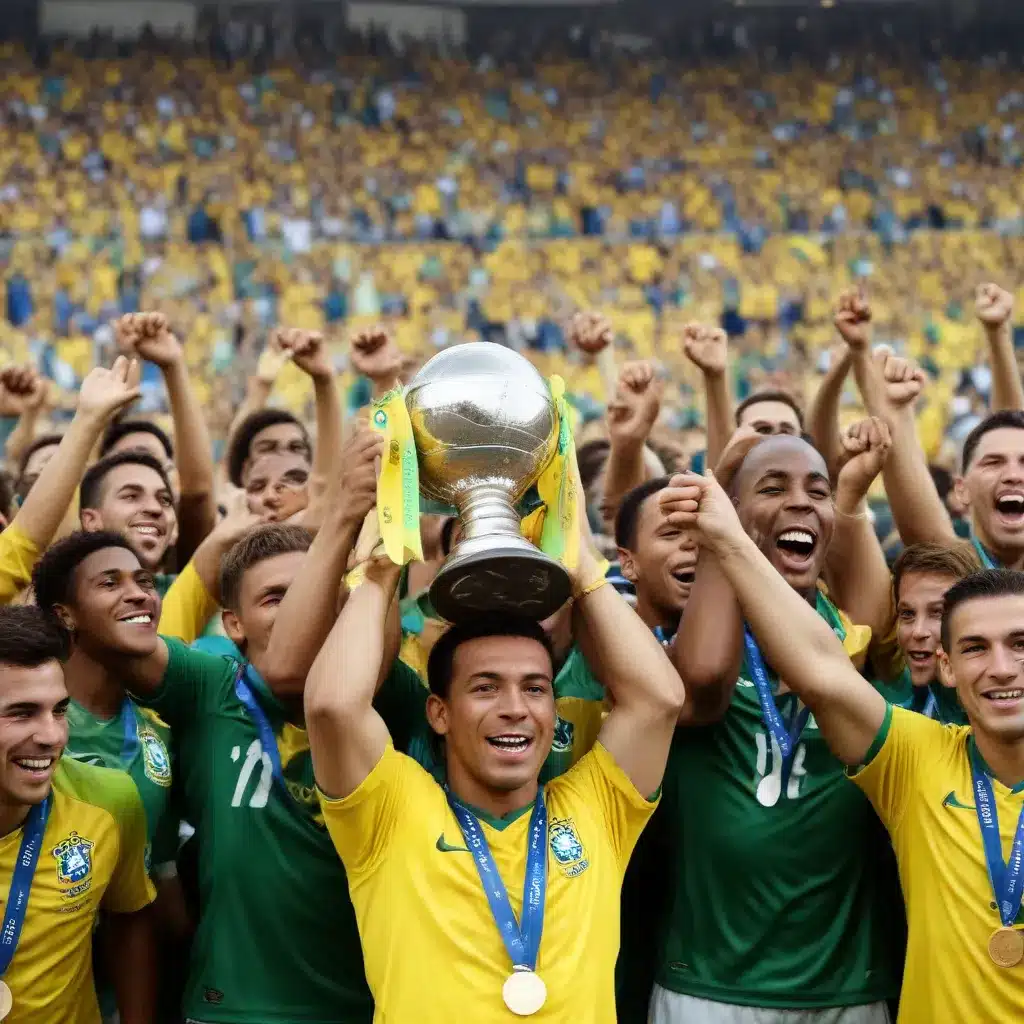
Analyzing the Role of Sports Tourism in Driving the Success of Brazil’s Regional Football Tournaments
Regional Football Tournaments in Brazil
Brazil’s domestic football landscape is a vibrant tapestry of regional tournaments that have captivated passionate fans for decades. From the iconic Campeonato Paulista in São Paulo to the fierce rivalries of the Campeonato Carioca in Rio de Janeiro, these local competitions have become deeply embedded in the cultural fabric of their respective states.
Major Tournaments
The Campeonato Paulista and Campeonato Carioca stand out as the two most prestigious and well-attended regional tournaments in Brazil. The Paulista, featuring powerhouses like São Paulo, Corinthians, Palmeiras and Santos, attracts millions of devoted supporters, while the Carioca showcases the eternal battles between Flamengo, Fluminense, Botafogo and Vasco da Gama. Other notable state championships include the Campeonato Mineiro (Minas Gerais), Campeonato Gaúcho (Rio Grande do Sul), and Campeonato Pernambucano (Pernambuco).
Tournament Structures
These regional tournaments typically follow a similar format, with teams divided into groups or “taças” that compete in a double round-robin phase. The top sides then advance to the knockout rounds, culminating in a highly anticipated final that captivates the entire state. The schedule is designed to coincide with the off-season of the Brasileirão, Brazil’s premier national league, allowing fans to immerse themselves in the local rivalries during the early months of the year.
Team Participation
Participation in the state championships is compulsory for all clubs playing in the Brasileirão, ensuring that the biggest names in Brazilian football are showcased at the regional level. This cross-pollination between the national and local tournaments has helped to maintain the relevance and prestige of the state-based competitions, which continue to draw massive crowds and generate significant revenue.
Sports Tourism and Football Events
The popularity of Brazil’s regional football tournaments has not gone unnoticed by the country’s thriving sports tourism industry. These events have become major drawcards for both domestic and international visitors, who are drawn to the electric atmosphere, passionate fan culture, and the opportunity to experience the unique local flavours of each host city.
Spectator Attraction
The state championships routinely attract tens of thousands of spectators to the stadiums, with the high-stakes clashes between traditional rivals often selling out well in advance. Fans travel from across the state and even further afield to support their beloved clubs, creating a vibrant and immersive experience for all in attendance.
Economic Impact
The influx of sports tourists has had a significant economic impact on the host cities, with increased spending on accommodation, dining, and local attractions. Hotels and restaurants in the vicinity of the stadiums often report a surge in bookings and revenue during the tournament season, while local businesses benefit from the increased foot traffic and consumer demand.
Infrastructure Development
The need to accommodate large crowds has also driven investment in stadium infrastructure and public transport systems. Many cities have undertaken renovations or constructed new state-of-the-art facilities to cater to the growing demands of the regional football tournaments, improving the overall fan experience and setting the stage for future events.
Role of Sports Tourism in Tournament Success
The symbiotic relationship between sports tourism and the regional football tournaments in Brazil has been a crucial factor in the enduring success of these competitions. The draw of the passionate fan culture, the opportunity to witness iconic derbies, and the chance to immerse oneself in the unique local flavours of each host city have all contributed to the tournaments’ appeal.
Attendance and Viewership
The high attendance figures and growing global television audience for these regional tournaments are a testament to their enduring popularity. Fans flock to the stadiums, while millions more tune in to watch the action unfold, captivated by the intensity of the rivalries and the electric atmosphere.
Revenue Generation
The influx of sports tourists has also been a significant driver of revenue for the tournament organizers, clubs, and host cities. Ticket sales, merchandise sales, sponsorship deals, and the economic benefits to local businesses have all combined to make the state championships a lucrative endeavour.
Destination Branding
Beyond the immediate economic benefits, the regional football tournaments have also played a crucial role in shaping the destination brands of their host cities. The tournaments have become synonymous with the unique cultural identities of each state, helping to attract visitors who are eager to immerse themselves in the local way of life.
Challenges and Opportunities
As the role of sports tourism in the success of Brazil’s regional football tournaments continues to grow, there are both challenges and opportunities that must be navigated.
Logistical Considerations
Accommodating the influx of sports tourists, managing transportation and security, and ensuring a seamless fan experience are all logistical hurdles that the tournament organizers and host cities must overcome. Effective planning and coordination between stakeholders are essential to maintain the high-quality standards expected by the passionate fan base.
Environmental Sustainability
The environmental impact of these large-scale events is another critical consideration. Tournament organizers must work closely with local authorities to ensure that sustainability practices are implemented, minimizing the carbon footprint and protecting the host cities’ natural resources.
Community Engagement
Engaging with the local communities and ensuring that the benefits of sports tourism are distributed equitably is crucial. Tournament organizers must work to foster a sense of inclusivity and ensure that the regional football tournaments are a source of pride and empowerment for the people of each host city.
As Brazil’s regional football tournaments continue to captivate audiences and drive sports tourism, the successful navigation of these challenges will be key to ensuring the long-term viability and growth of these iconic competitions. By embracing the power of sports tourism and aligning it with the unique cultural identities of each host state, the regional tournaments can continue to thrive and cement their status as cornerstones of Brazil’s rich football heritage.

